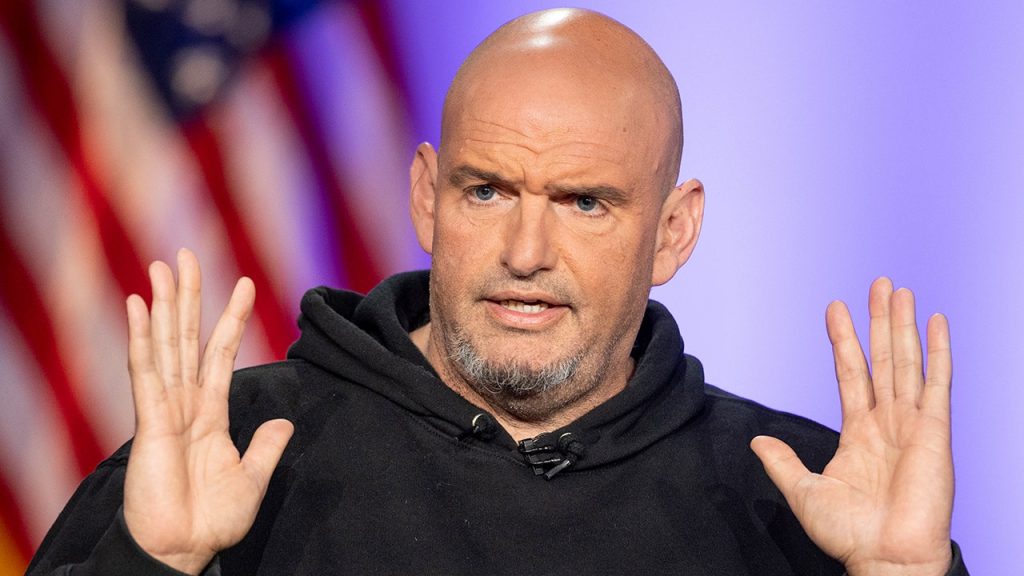Senator Fetterman Challenges Fellow Democrats’ Embrace of Socialism
In an era of shifting political ideologies within the Democratic Party, Pennsylvania Senator John Fetterman has emerged as a voice of caution against the growing affinity for socialism among his fellow Democrats. His recent comments highlight a deepening ideological divide within the party, as he draws on firsthand accounts from people who experienced communist regimes to warn against what he perceives as dangerous political trends in America.
Speaking candidly about a recent Gallup poll that revealed 66% of Democrats view socialism favorably while only 42% hold positive views of capitalism, Fetterman recounted a revealing conversation he had while visiting Croatia, a nation formerly under communist rule. “I literally was in a former communist nation. And I asked that — I said, ‘Some people in my party, some of the lefties are talking about socialism now. What do you think?'” The response he received was unambiguous and stark: “that’s the worst thing ever – you’re going to need a reality check if you ever adopt any of those things. You know, like — you are morons.” This exchange seems to have reinforced Fetterman’s skepticism about the leftward shift within segments of his party, as he shared that Croatians told him they were “mystified why America is having that conversation” about socialism and expressed gratitude for being “freed from” communist rule.
The context for Fetterman’s comments is significant, as the Democratic Party has experienced a notable leftward shift in recent years. This transformation began in earnest with Vermont Senator Bernie Sanders’ rise to prominence and the subsequent emergence of the progressive “Squad” in the House of Representatives. These developments have sparked intense debates about the future direction of the party and American politics more broadly. The tension was recently highlighted when former President Donald Trump labeled New York City mayoral frontrunner Zohran Mamdani a “Communist lunatic,” while Mamdani himself rejected the communist label, preferring to identify as a “democratic socialist” – a distinction that critics often dismiss as semantic rather than substantive.
While figures like Mamdani and Representative Pramila Jayapal argue that the current economic system “is not working for the majority of Americans anymore” and that “this world that we’ve inherited is not sustainable to human life,” Fetterman’s position appears to be informed by Croatia’s historical experience with communism. Under Josip Tito’s oppressive communist regime, which ruled from the end of World War II through the 1980s, dissent was swiftly crushed, and political freedoms were severely limited. Only after Tito’s death in 1980 did the country begin a gradual process of democratization, eventually holding multi-party elections by 1989. Today, Croatia’s government under Prime Minister Andrej Plenković represents a stark contrast to its authoritarian past, embracing conservative, pro-NATO, and pro-market principles.
Fetterman’s willingness to challenge progressive orthodoxy within his own party is not without precedent. He has previously described Mamdani’s primary victory in New York as “a gift to the GOP” and has positioned himself as someone who doesn’t always align with mainstream Democratic positions. This independent streak has made him a complex figure within the party – sometimes embraced for his working-class appeal and straightforward communication style, other times viewed with suspicion by those who question his progressive credentials on certain issues.
The broader debate about socialism versus capitalism in America continues to evolve, with younger generations showing more openness to socialist ideas than their predecessors. However, Fetterman’s message serves as a reminder that for many who have lived under actual socialist or communist regimes, the theoretical appeal of these systems often contrasts sharply with their practical implementation. As the Democratic Party continues to grapple with these ideological questions, voices like Fetterman’s provide a counterbalance to more progressive elements, reflecting the diverse perspectives that exist within the party and highlighting the complexity of translating political philosophies into governance models that truly serve the American people.















